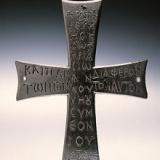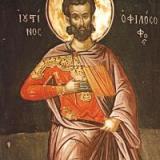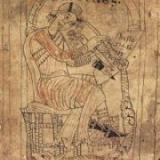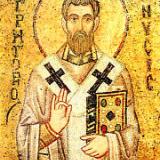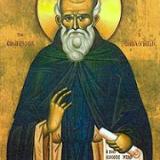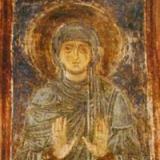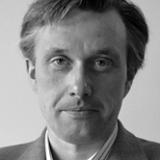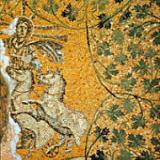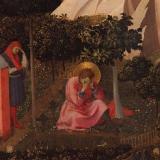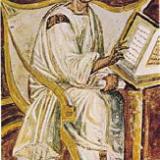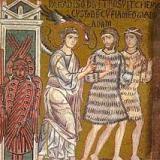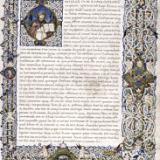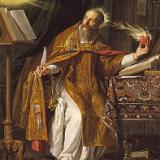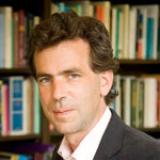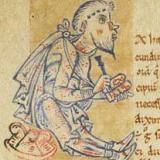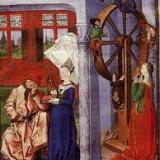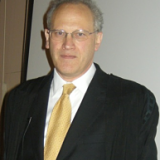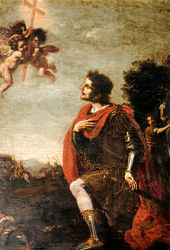Ancient Christianity
These episodes examine the attitude of ancient Christians towards philosophy, and how they contributed new philosophical ideas in the context of articulating and defending the new faith. Major figures include Origen, Gregory of Nyssa, Augustine, and Boethius. Interviews with George Boys-Stones, Charles Brittain and John Marenbon.
Peter would like to thank Marc Delcogliano for his help with the episodes in this part of the podcast!
The book version of these podcasts is available from Oxford University Press.
• A. Bowman, A. Cameron and P. Garnsey (eds), Cambridge Ancient History vol. 12: The Crisis of Empire, AD 193-337(Cambridge: 2005).
• P. Brown, The Rise of Western Christendom (Oxford: 1966).
• V. Burrus (ed.), Late Ancient Christianity (Minneapolis: 2005).
• M. Edwards, Christians, Gnostics and Philosophers in Late Antiquity (Farnham: 2012).
• W. Jaeger, Early Christianity and the Greek Paideia (London: 1969).
• G. Karamanolis, The Philosophy of Early Christianity (Durham: 2013).
• W.A. Löhr, “Christianity as Philosophy,” Vigiliae Christianae 64 (2010), 160-88.
• E. Osborne, The Beginning of Christian Philosophy (Cambridge: 1981).
• P.G. Pavlos et al (eds), Platonism and Christian Thought in Late Antiquity (London: 2019).
• C. Stead, Philosophy in Christian Antiquity (Cambridge: 1994).
• S. Xenophontos and A. Marmodoro (eds), The Reception of Greek Ethics in Late Antiquity and Byzantium (Cambridge: 2021).
• F. Young, L. Aures, and A. Louth (eds), Cambridge History of Early Christian Literature (Cambridge: 2004).
• J. Zachhuber, The Rise of Christian Theology and the End of Ancient Metaphysics: Patristic Philosophy from the Cappadocian Fathers to John of Damascus (Oxford: 2020).
Posted on
Peter surveys Christian philosophy in the Roman empire, looking ahead to major figures like Origen and Augustine.
Posted on
Irenaeus, Clement, and Justin Martyr struggle to define Christian orthodoxy and claim philosophy back from the Greeks.
Posted on
Origen, greatest of the Greek Church Fathers, sets out a stunning theory of human redemption as he marries philosophical rigor to theological speculation.
Posted on
Basil of Caesarea, his brother Gregory of Nyssa, and Gregory of Nazianzus use philosophy to help the poor and to defeat their theological opponents.
Posted on
Neoplatonism is fused with Christianity by the pseudonymus author known as Dionysius. Peter looks at his Divine Names, a monument to God’s transcendence.
Posted on
Maximus the Confessor brings us to the brink of the medieval Byzantine period with his philosophical defense of Christ’s full divinity and full humanity.
Posted on
Christian ascetics like Antony, Macrina and Evagrius create a new ethical ideal by pushing the human capacity for self-control to its limits.
Posted on
George Boys-Stones joins Peter to discuss philosophy in the Bible and the Greek Church Fathers.
Posted on
The Latin church fathers Tertullian, Lactantius, Jerome, and Ambrose discuss soul, ethics, and the dangers of Hellenic philosophy.
Posted on
Augustine’s life story is related in the Confessions, a work that combines autobiography, theology, and metaphysical discussions of the nature of time.
Posted on
In On the Teacher and On Christian Doctrine, Augustine argues that language cannot produce knowledge and explains how to interpret Scriptural language.
Posted on
Augustine attempts to reconcile human freedom with God’s foreknowledge and his own claim that we need divine grace to avoid sin.
Posted on
In his City of God Augustine traces the histories and philosophical underpinnings of two “cities,” one devoted to worldly glory, the other to heavenly bliss.
Posted on
Peter speaks with Sarah Byers about the Stoic influence on Augustine's ethics and theory of action.
Posted on
Augustine explores the nature of the human mind in order to establish its similarity to, and dissimilarity from, the divine Trinity.
Posted on
In a final episode on Augustine, Charles Brittain joins Peter to discuss the theory of mind presented in "On the Trinity".
Posted on
Apuleius, Victorinus, Martianus Capella, Macrobius and Calcidius present and interpret Platonic teachings for readers of Latin.
Posted on
Boethius ushers in the medieval age with expert works on Aristotle, subtle treatises on theology, and the Consolation of Philosophy, written while he awaited execution.
Posted on
John Marenbon joins Peter to discuss Boethius' solution to the problem of divine foreknowledge.




